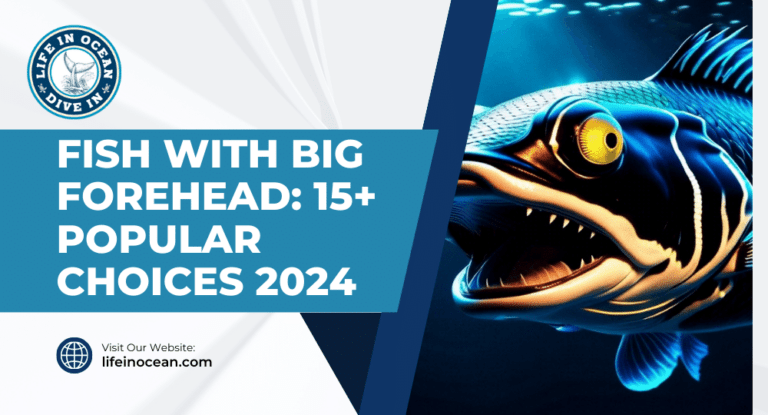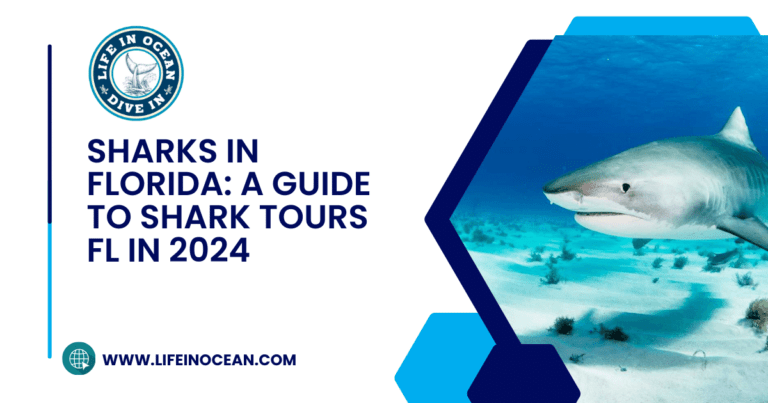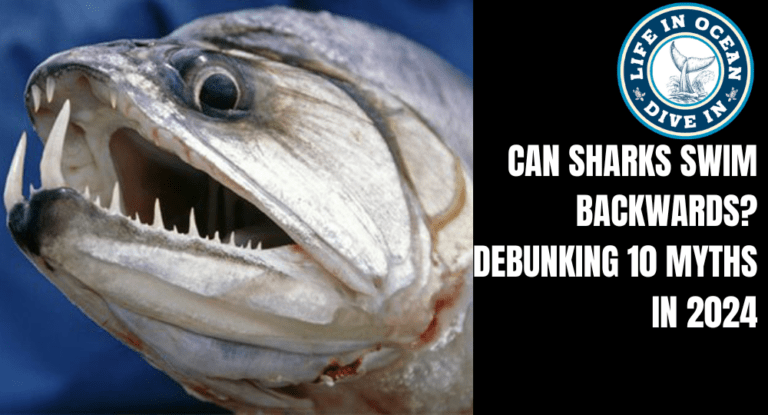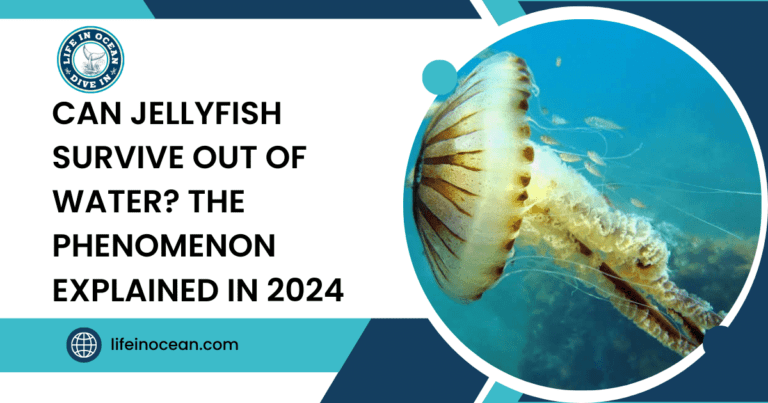Ever wondered about the dietary habits of sharks? The question “Do sharks eat jellyfish?” often sparks curiosity. Surprisingly, some shark species do consume these gelatinous creatures as part of their diet. This intriguing aspect sheds light on the complex and diverse feeding behaviors within the marine ecosystem. Exploring this topic not only provides insight into shark behavior but also underscores the interconnectedness of ocean life.
Table of Contents
Shark’s Diet and Jellyfish Consumption
Diverse Diets
Sharks have diverse diets, which means they eat a wide variety of sea creatures, crabs, and tentacles. This includes jellyfish as well. Some sharks are picky eaters, while others will consume almost anything that crosses their path. Because of this, jellyfish tentacles are a common food source for many shark species.
Predators of Jellyfish in the Marine Ecosystem
Diverse Predators
Many species in the marine ecosystem are predators of jellyfish, contributing to the delicate balance of this underwater world. For instance, sea turtles and sunfish are known to feed on jellyfish. These creatures play a crucial role in controlling the population of jellyfish, preventing them from overwhelming other species.
Jellyfish serve as prey for a variety of marine animals, including seabirds, crabs, and certain fish species. This predation is essential for maintaining a healthy equilibrium within the marine food web.
Ecological Balance
The act of consuming jellyfish by various predators helps regulate their population levels. Without these natural checks and balances, an overabundance of jellyfish could disrupt the entire marine ecosystem. By understanding which creatures consume jellyfish, scientists can gain valuable insights into how to preserve ecological harmony in our oceans.
Predation on jellyfish also aids in managing their venomous nature. Certain predators have developed immunity or resistance to venom, making them less susceptible to harm when they consume these gelatinous creatures.
Shark Adaptations for Consuming Jellyfish
Specialized Adaptations
Sharks have adaptations that make them well-suited for consuming jellyfish. Their tough skin protects them from the stings of jellyfish, allowing them to hunt without being harmed. Their modified mouth and teeth are designed to grip and consume slippery prey like jellyfish.
Jellyfish can be difficult to catch due to their gelatinous bodies, but sharks have evolved flexible jaws that enable them to consume large quantities of jellyfish in a single gulp. This unique adaptation allows sharks to efficiently feed on these elusive creatures, contributing to their success as predators in the marine ecosystem.
Remarkable Digestive Ability
One remarkable adaptation of sharks is their ability to digest the toxins found in many species of jellyfish. Despite the toxic nature of some jellyfish species, sharks possess digestive systems that can neutralize or tolerate these toxins. This showcases the incredible resilience and adaptability of sharks as they navigate through various challenges presented by their diet choices.

- Sharks’ tough skin protects them from jellyfish stings
- Modified mouth and teeth help sharks grip and consume slippery prey like jellyfish
- Flexible jaws enable sharks to consume large quantities of jellyfish at once
- Sharks possess digestive systems capable of neutralizing or tolerating toxins found in some species of jellyfish
Interaction Dynamics Between Sharks and Jellyfish
Impact on Marine Ecosystems
The interaction between sharks and jellyfish plays a crucial role in the distribution and abundance of these sea creatures. Understanding this dynamic relationship is essential for assessing its impact on marine ecosystems. For instance, when sharks consume jellyfish, it can help control jellyfish populations, preventing them from overwhelming other species.
This interaction also affects the food web in the ocean. When sharks feed on jellyfish, it influences the availability of food for other marine animals like dolphins, fish, whales, seals, and turtles. Therefore, changes in this interaction can have cascading effects throughout the entire marine ecosystem.
Influence of Seasonal Variations
Factors such as seasonal variations significantly affect how sharks interact with jellyfish. During certain times of the year or under specific environmental conditions like changes in water temperature or ocean currents, there may be fluctuations in both shark behavior and jellyfish distribution. For example, some species of sharks might migrate to different areas during particular seasons where their prey (jellyfish) is more abundant.
Understanding these dynamics helps researchers predict potential shifts in predator-prey relationships due to climate change or human activities that could impact both shark and jellyfish populations.
Understanding Sharks’ Attraction to Jellyfish
Chemical Cues
Jellyfish release chemical cues into the water, which act as a signal for sharks. These cues are like an inviting scent that draws sharks toward the jellyfish. The chemical signals trigger the shark’s senses and lead them to the source of these scents, ultimately attracting them to consume the jellyfish.
Sharks have an acute sense of smell, allowing them to detect even small concentrations of chemicals in the water. When jellyfish release compounds into their surroundings, it creates a trail that sharks can follow. This phenomenon explains why sharks are often found in areas where there is a high population of jellyfish.
Size and Movement Patterns
The size and movement patterns of jellyfish also play a significant role in attracting sharks. Large blooms of jellyfish can be particularly appealing to certain species of sharks due to their abundance as a food source. Some types of jellyfish move with pulsating motions or by drifting with ocean currents, making them more conspicuous targets for predatory animals such as sharks.
Understanding how sensory perception influences shark behavior when encountering different sizes and movements among various species of jellyfish provides valuable insights into their feeding habits and ecological roles within marine ecosystems.
The Role of Jellyfish in the Marine Food Chain
Key Prey for Sharks
Jellyfish are a vital food source for many marine creatures, including sharks. These gelatinous organisms provide essential nutrients and energy to sharks, helping them maintain their place in the marine ecosystem. When jellyfish populations thrive, they can support the survival and growth of small fish that sharks prey upon.
Jellyfish also play a crucial role in transferring energy through the marine food chain. As they are consumed by various organisms, including sharks, they contribute to nutrient cycling within marine ecosystems. This process is essential for maintaining a balanced and healthy ocean environment.
Insights into Trophic Interactions
Studying the relationship between jellyfish and their predators like sharks offers valuable insights into trophic interactions within marine food webs. By understanding how jellyfish fit into these complex networks, scientists can gain a better understanding of how energy flows through different levels of the food chain.

This knowledge helps researchers comprehend how changes in jellyfish populations can impact other species in the ecosystem, including those at higher trophic levels such as sharks. It also sheds light on how disruptions or imbalances in this delicate web of interactions could have far-reaching consequences for marine life.
Factors Influencing Sharks’ Dietary Choices
Environmental Factors
Sharks’ menu choices are influenced by environmental factors such as temperature, water quality, and the availability of their prey. For instance, some species of sharks prefer warmer waters where certain types of jellyfish thrive. This preference can impact the likelihood of sharks consuming jellyfish.
The diversity and abundance of marine life in a particular area also play a crucial role in determining what sharks eat. When there’s an abundance of fish or other preferred prey, sharks may consume less jellyfish due to competition for resources.
Seasonal Changes and Migration Patterns
Seasonal changes and migration patterns can significantly affect the variety of food sources available to sharks. For example, during certain seasons when fish populations decrease or migrate to different areas, sharks may turn to alternative food sources such as jellyfish.
Understanding these factors provides valuable insights into the complex relationship between sharks, their prey, and the marine environment they inhabit. It allows scientists to better comprehend shark ecology and behavior while shedding light on how various components within the marine ecosystem interact with each other.
The Ecological Impact of Shark-Jellyfish Predation
Population Dynamics
Do sharks eat jellyfish? Yes, they do. This predation significantly impacts the population dynamics of jellyfish. When sharks prey on jellyfish, it affects the number of jellyfish in a particular area. For example, if there are more sharks in an area, they will consume more jellyfish, leading to a decrease in the jellyfish population.
This can have a ripple effect on other marine species that rely on or compete with jellyfish for resources. It can disrupt the balance within the ecosystem and lead to changes in species distribution patterns.
Ecosystem Function
The interaction between sharks and jellyfish also influences the structure and function of marine ecosystems. As predators, sharks play a crucial role in regulating prey populations. By consuming jellyfish, they help control their numbers and prevent potential overpopulation scenarios.
This predation can indirectly impact other organisms within the ecosystem by influencing food availability and competition dynamics. Understanding how shark-jellyfish interactions affect ecosystem function is essential for managing and conserving marine environments.
Final Remarks on Do Sharks Eat Jellyfish
You’ve delved into the intriguing world of shark diets and their surprising appetite for jellyfish. From understanding the ecological impact of this predation to exploring the factors influencing sharks’ dietary choices, you’ve gained a deeper insight into the complex dynamics at play in the marine ecosystem. As apex predators, sharks play a crucial role in maintaining balance, and their consumption of jellyfish has far-reaching implications for marine life.

So, next time you’re at the beach and spot a jellyfish, take a moment to appreciate the intricate web of interactions that shape our oceans. Consider how every creature, no matter how small, contributes to the delicate balance of nature. And if you ever find yourself pondering the mysterious ways of marine life, remember that even the most unexpected connections can hold the key to understanding our planet’s rich biodiversity.
Frequently Asked Questions
Do sharks primarily consume jellyfish as part of their diet?
Yes, some shark species do consume jellyfish as part of their diet. However, not all sharks feed on jellyfish. Certain species have specialized adaptations for consuming these gelatinous creatures, while others prefer different prey.
How do sharks adapt to consume jellyfish?
Sharks that feed on jellyfish often have specialized adaptations such as thicker stomach linings to protect against stinging cells and modified jaws to efficiently capture and ingest the slippery bodies of jellyfish.
What role do jellyfish play in the marine food chain?
Jellyfish are an essential component of the marine food web. They serve as a crucial food source for various marine organisms including certain fish species, sea turtles, and even some types of sharks. They help regulate plankton populations.
Are there specific factors that influence a shark’s decision to consume jellyfish?
Several factors influence a shark’s dietary choices including availability of other prey, environmental conditions affecting prey abundance, and individual preferences based on taste and nutritional value.
What is the ecological impact of shark-jellyfish predation?
The predation of sharks on jellyfish helps control the population levels of these gelatinous creatures within marine ecosystems. This interaction plays a vital role in maintaining balance within oceanic environments by preventing unchecked proliferation of certain jellyfish species.







